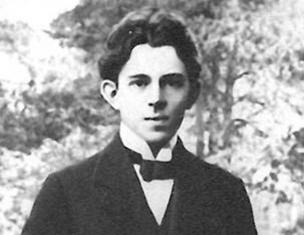Task B6 tests your ability to analyze and parse a complex sentence. Depending on the option, you will need to find:
1) complex sentence;
2) complex sentence;
3) a complex sentence with a certain type of subordinate clause;
4) a complex sentence with several subordinate clauses indicating the type of attachment of the subordinate clauses to the main clause;
5) complex non-union proposal;
6) complex sentence with different types communications.
Hint from the site.
To remember the different types of communication, re-read task A9.
The following diagram will also help you:
Complex sentence.
Complex sentence is a sentence that includes two or more bases, where one base is subordinate to the other.
Since the structure of the sentence, the question from the main stem to the dependent (subordinate) can be different, there are several types of complex:
| Subordinate clause type | Features of the subordinate clause | What question does it answer? | Communications | |
| unions | allied words | |||
| attributive | contains a characteristic of an object, reveals its attribute (refers to the noun in the main part) | Which? which one exactly? |
so that, as if, as if | which, which, what, whose, when, where, where, etc. |
| pronominal attributive | refers to the pronoun in the main part of the SPP ( then, that, those, each, every, any, all, all, everything) and specifies the meaning of the pronoun | who exactly? What exactly? |
as, as if, as if, what, to | who, what, which, which, whose, which, etc. |
| explanatory | subordinate clause require words with the meaning of thought, feeling, speech (verb, adjective, noun) | questions of indirect cases (what? about what? what?) |
what, as, as if, as if, as if, as if, so that, bye | who, what, which, which, whose, where, where, from, how much, how much, why |
| mode of action and degree | 1) reveals the method or quality of the action, as well as the measure or degree of manifestation of the characteristic in the main part of the sentence; 2) have demonstrative words in the main part ( so, so much, thus, to that, so much, to such an extent...). |
How? how? to what extent or extent? |
what, so, how, as if, exactly | |
| places | 1) contains an indication of the place or space where what is said in the main part takes place; 2) can distribute main part or reveal the content of adverbs there, there, from there, everywhere, everywhere etc. |
Where? | where, where, where | |
| time | 1) indicates the time of the action or manifestation of the sign referred to in the main part; 2) can extend the main part or clarify the circumstance of time in the main part |
When? How long? since when? until when? |
when, while, how, while, after, since, barely, only | |
| conditions | 1) contains an indication of the condition on which the implementation of what is stated in the main part depends; 2) the condition can be emphasized in the main part by the combination in that case |
under what condition? | if, how, how soon, once, when, whether...whether | |
| reasons | contains an indication of the reason or justification for what is said in the main part | Why? for what reason? |
because, because, since, due to the fact that, due to the fact that, due to the fact that, due to the fact that, since, etc. | |
| goals | contains an indication of the purpose or purpose of what is being said in the main part of the sentence | For what? for what purpose? For what? |
so that, in order to, in order to, then that, so that, if only, if only | |
| concessions | contains an indication of the condition in spite of which what is said in the main part is accomplished | no matter what? in spite of what? |
although, despite the fact that, despite the fact that, even though, even though | |
| comparative | compares objects or phenomena in the main part and subordinate clause | How? (what does it look like?) |
as, just as, as if, as if, exactly, as if | |
| consequences | indicates a consequence arising from the content of the main part of the sentence | what follows from this? what was the consequence? |
So | |
Complex sentence with several subordinate clauses
Complex sentence with different types connections (examples)
(1) The morning is magnificent: the air is cool; the sun is not high yet.
(2) And the steering wheel fidgets, and the trim creaks, and the canvas is pulled into reefs.
(3) I want you to hear how my living voice yearns.
(4) There is glory for everyone; work and it is yours.
(5) The grief will be forgotten, a miracle will happen, what was only a dream will come true.
(6) I looked at the hut, and my heart sank - this always happens when you see something that you have been thinking about for many years.
(7) And yet he was sad, and somehow he especially dryly told the chief of staff that his adjutant had been killed and a new one needed to be found.
Action algorithm.
1. Highlight the basics.
2. Eliminate all simple sentences.
3. See how the basics are connected: conjunction, conjunction word, intonation.
4. Define the boundaries of the fundamentals.
5. Determine the type of connection.
Analysis of the task.
Among sentences 1-5, find a complex sentence with an explanatory clause. Write his number.
(1) As a child, I hated matinees because my father came to our kindergarten. (2) He sat on a chair near the Christmas tree, played his button accordion for a long time, trying to find the right melody, and our teacher sternly told him: “Valery Petrovich, move up!” (3) All the guys looked at my father and choked with laughter. (4) He was small, plump, began to go bald early, and although he never drank, for some reason his nose was always beet red, like a clown’s. (5) Children, when they wanted to say about someone that he was funny and ugly, said this: “He looks like Ksyushka’s dad!”
Let's highlight the basics:
(1) As a child, I hated matinees because my father came to our kindergarten. (2) He sat on a chair near the Christmas tree, played his button accordion for a long time, trying to find the right melody, and our teacher she strictly told him: “Valery Petrovich, go higher!” (3) All the guys looked at my father and choked with laughter. (4) He was small, plump, began to go bald early, and, although he never drank, for some reason his nose was always beet red, like a clown’s. (5) Children, when they wanted to say about someone that he was funny and ugly, said this: “He looks like Ksyushka’s dad!”
Proposition No. 3 is simple. Let's exclude him.
We define the boundaries of sentences and see how the basics are connected:
(1) [As a child, I hated matinees], ( That's why What my father came to our kindergarten). (2) [He sat on a chair near the Christmas tree, played his button accordion for a long time, trying to find the right melody], A[our teacher sternly told him]: “Valery Petrovich, go higher!” (4)[He was small, plump, and began to go bald early] And, (Although never drank), [for some reason his nose was always beet red, like a clown’s]. (5) [Children, ( When wanted to say about someone), ( What he’s funny and ugly), they said: “He looks like Ksyushka’s dad!”
The first sentence is a complex sentence with a subordinate clause (why did I hate matinees? Because my father came).
The second sentence is a compound sentence with direct speech.
The fourth sentence is complex with a coordinating connection (conjunction and) and a subordinating connection (clause although...).
The fifth sentence is a complex sentence with two subordinate clauses and direct speech. The first subordinate clause is time (the children said when? when they wanted to talk about someone); the second subordinate clause is explanatory (they wanted to say something about someone? that he is funny and ugly).
So way, the correct answer is sentence No. 5.
Practice.
1. Among sentences 1 – 9, find a complex sentence that contains a subordinate clause. Write the number of this offer.
(1) It is not difficult to imagine what was going on at that moment in the soul of the commander: he, who had taken upon himself the unbearable burden of a shameful retreat, was deprived of the glory of a victorious battle. (2) ...Barclay's traveling carriage stopped at one of the post stations near Vladimir. (3) He headed towards the house stationmaster, but a huge crowd blocked his way. (4) Insulting shouts and threats were heard. (5) Barclay’s adjutant had to draw his saber to pave the way to the carriage. (6) What consoled the old soldier, upon whom the unjust anger of the crowd fell? (7) Perhaps faith in the correctness of one’s decision: it is this faith that gives a person the strength to go to the end, even if he has to alone. (8) And perhaps Barclay was consoled by hope. (9) The hope that someday dispassionate time will reward everyone according to their deserts and the fair court of history will certainly acquit the old warrior who gloomily rides in a carriage past a roaring crowd and swallows bitter tears.
2. Among sentences 1 – 10, find a complex sentence that includes subordinate clause(s) of comparison. Write the number(s) for this sentence.
(1) No matter how hard I tried, I could not imagine that there once were houses here, noisy children running, apple trees growing, women drying clothes... (2) No sign of the former life! (3) Nothing! (4) Only the sad feather grass mournfully swayed its stems and the dying river barely moved among the reeds... (5) I suddenly felt scared, as if the earth had become exposed beneath me and I found myself on the edge of a bottomless abyss. (6) It can’t be! (7) Does man really have nothing to oppose to this dull, indifferent eternity? (8) In the evening I cooked fish soup. (9) Mishka was throwing wood on the fire and reaching into the pot with his cyclopean spoon to take a sample. (10) Shadows moved timidly next to us, and it seemed to me that people who had once lived here timidly came here from the past to warm themselves by the fire and talk about their lives.
3. Among sentences 1 – 11, find a complex sentence with homogeneous subordinate clauses. Write the number of this offer.
(1) An old man in a naval uniform was sitting on the river bank. (2) The last pre-autumn dragonflies fluttered over him, some sat on worn epaulettes, breathed and fluttered when the man occasionally moved. (3) He felt stuffy, he relaxed his long-unbuttoned collar with his hand and froze, peering with teary eyes into the palms of the small waves patting the river. (4) What did he see now in this shallow water? (5) What was he thinking about? (6) Until recently, he still knew that he had won great victories, that he had managed to break free from the captivity of old theories and discovered new laws sea battle that he created more than one invincible squadron, trained many glorious commanders and crews of warships.
Subordinate clauses in Russian are dependent parts of the main clause in a complex sentence. That is, they play the role of secondary members of the sentence. Therefore, types subordinate clauses are divided taking into account the role performed in the sentence. You can ask one question for the entire secondary sentence, just as you do with the members of the sentence.
Main types of subordinate clauses
Four types of them are considered: attributive, adverbial, explanatory and connecting. We can give examples that represent all types of subordinate clauses:
- The flowerbed, which was laid out in the courtyard on the left side of the porch, resembled a smaller copy of the town - a sort of Flower Town from Nosov’s fairy tale about Dunno. (Definitive).
- And it seemed to me that restless and funny little people really lived there. (Expository).
- And we don’t see them because they are hiding from us underground. (Adverbial).
- But as soon as we leave somewhere, the short ones get out of their hiding places and begin to vigorously enjoy life. (Connection).

Determinative clauses
These subordinate clauses in Russian define the attribute of one noun or sometimes a phrase consisting of a noun and a demonstrative word. They serve as answers to questions Which? whose? which? These minor offers join the main part with allied words whose, which, who, what, which, from where, where, when. Usually in the main part of a complex sentence there are such demonstrative words as such, everyone, everyone, any or That V various forms childbirth The following proposals can be taken as examples:
- Living beings, ( which?) who live on the planet next to people, feel good human attitude to them.
- Reach out your hand with food, open your palm, freeze, and some bird, ( which?) whose voice is heard in the bushes of your garden in the morning, will sit on your hand with trust.
- Every person ( Which?) who considers himself the pinnacle of the Almighty's creation, must correspond to this title.
- Whether it’s a garden, a forest or an ordinary yard, (Which?)where everything is familiar and familiar, can open the door to a person amazing world nature.

Subordinate clauses
Interesting types of subordinate clauses that relate not to a single word or phrase, but to the entire main part. They are called connecting. Often these parts of a complex sentence contain the meaning of the consequence, supplementing or explaining the content of the main part. Secondary sentences of this type are joined using allied words where, how, when, why, where, what. Examples:
- And only next to his mother does any baby feel protected, what is provided by nature itself.
- Caring for cubs, tenderness for one’s offspring, self-sacrifice are embedded in a creature at the level of instinct, how every creature has an inherent need to breathe, sleep, eat and drink.

Explanatory clauses
If the author of the text wants to clarify, specify one word of the main part, which has the meaning of thought, perception, feeling or speech. Often these clauses refer to verbs, such as say, answer, think, feel, be proud, hear. But they can also specify adjectives, for example, happy or glad. It is often observed when these types of subordinate clauses act as explanations of adverbs ( clear, necessary, necessary, known, sorry) or nouns ( message, thought, statement, rumor, thought, feeling). Explanatory clauses are added using:
Unions (so that, what, when, as if, how and others);
Any allied words;
Particles (of the union).
Examples include the following compound sentences:
- Have you ever watched, ( What?) how amazingly the sunlight plays, reflected in dew drops, insect wings, snowflake tiles?
- One day, a person will surely be incredibly happy about this beauty, ( what?) that I discovered a unique world of beauty.
- And it immediately becomes clear, ( What?) that everything around was created for a reason, that everything is interconnected.
- Consciousness will be filled with indescribable feelings of joy, (which?) as if you yourself are a part of this amazing and unique world.

Clauses of manner and degree
Adverbial clauses are divided into several subtypes. A group of dependent parts of compound sentences that relate to the attribute or action named in its main part, and denote its degree or measure, as well as image, are classified as subordinate clauses of manner of action and degree. They usually answer the following questions: how? how much? How? to what extent? The design of the connection of the subordinate with main part looks something like this: full adjective + noun + such; full adjective + such; verb + so. The joining of these subordinate clauses is ensured by conjunctions so that, what, as if or allied words how much, how much and some others. Examples:
- The girl laughed so contagiously, so spontaneously, that it was difficult for everyone else not to smile.
- The ringing sounds of her laughter broke the tense silence of the room, as if multi-colored peas from a bag suddenly scattered.
- And the baby’s face itself changed so much, as far as this was possible in this case: the girl, exhausted by the disease, could easily be called a lovely and absolutely healthy child.

Adverbial clauses
These dependent clauses indicate the place of origin of the action, which is called in the main part compound sentence. Referring to the entire main sentence, they answer the following questions: where? Where? Where? and are joined by allied words where, where, where. Often there are demonstrative words in the main clause there, everywhere, there, everywhere, from everywhere and some others. The following examples of such proposals can be given:
- It is quite easy to determine the cardinal directions in the forest thicket, where there is moss on the trees.
- The ants were dragging on their backs building material for their anthills and food supplies from everywhere, wherever these hardworking creatures could get.
- I am always drawn there, to magical lands, where we went with him last summer.

Adverbial clauses of time
Indicating the time of action, these subordinate clauses refer both to the entire main sentence and specifically to one predicate. You can ask the following questions about this type of subordinate clause: How long? until when? When? since when? Often there are demonstrative words in the main part of the sentence, for example: sometimes, once, always, now, then. For example: Animals will then be friendly with each other, (When?) when they grow up next to each other since childhood.

Adverbial clauses, causes, goals, consequences
- If the dependent parts of complex sentences answer questions in what case? or under what condition? and relate either to the predicate of the main part or to the whole of it, joining with the help of conditional conjunctions once, if, if, if, when And How(meaning “if”), then they can be classified as subordinate conditions. Example: And even the most inveterate scoundrel turns into a serious and well-mannered gentleman, ( in what case?)when he becomes a parent, be it a person, a monkey or a penguin.
- For questions because of what? Why? for what reason? why? adjunct reasons answer. They are connected using causal conjunctions because, because, since. Example: For a child in early childhood, the authority of the parent is unshakable, ( Why?) because his well-being depends on this creature.
- Dependent clauses indicating the purpose of the action named in the main part and answering questions For what? for what purpose? For what?, are called subordinate clauses. Their connection to the main part is ensured by target unions in order to, then in order to (in order to). Example: But even then you should accompany your requirements with explanations ( for what purpose?) then, so that the baby grows into a thinking person, and not a weak-willed robot performer.
- Dependent parts of a sentence that indicate a conclusion or result, indicate a consequence arising from the above in the main part of the sentence, are called subordinate clauses of the consequence and relate to the entire main sentence. They are usually joined by consequence unions That's why or So, for example: Education is a complex and regular process, ( what follows from this?) therefore, parents should always be in shape and not relax even for a minute.

Adverbial clause comparisons
These types of dependent clauses in complex constructions relate either to the predicate or to the entire main part and answer the question like what?, joining comparative unions as if, than (that), as if, exactly. Subordinate clauses differ from comparative phrases in that they have a grammatical basis. For example: The polar bear cub so funny fell on his side and raised his paws up, it looks like a naughty boy playing happily in the sandbox with his friends.

Circumstantial clauses
Dependent clauses in a complex construction, denoting circumstances in spite of which the action indicated in the main part has been or can be committed, are called subordinate clauses of concession. You can ask them questions: contrary to what? no matter what? and join to the main thing with the help of concessionary unions at least (even though), let (even though), that, for nothing, despite and some others. Conjunctive combinations are often used: no matter how much, whatever, whenever, whoever, no matter how and the like. Example: Even though the panda cubs were playing happily, their dark spots around their eyes gave the impression of sad thoughtfulness.
A literate person should always remember: when writing, sentences that are part of a complex sentence are separated by commas.
Task 1 PLACE PUNCTION MARKS, MAKE UP DIAGRAMS, DETERMINE TYPES OF SUBJECT CLAUSES. 1) In the hut where they were allowedLunch was musty and stuffy, smelling of bread and shredded cabbage.
2) Fedka saw how the high bow of the steamer flew towards them from the darkness with uncontrollable force, without noticing them, heading towards the very middle of the ship.
3) Gerasimov looked at his feeder so much that he regretted the question asked.
4) The night was dark because clouds covered the sky and did not let in the light of the stars.
5) As soon as the regiment left Ozernoye, cold rain began.
6) From a distance one could see bunches of rowan and hawthorn blushing under the sun.
7) Grinyuk raised his chin and looked into the sky, where from time to time the almost regular disk of the moon slipped out from under the wisps of clouds.
8) At that moment when Ivan entered the yard there was a pause.
9) The old ferry was pulled ashore and tightly tied to the ancient mighty willows so that it would not be carried away by the uncontrollable spring flood.
10) With my chin buried in the snow, I agonized over what to do.
Task 2 PLACE PUNCTION MARKS, MAKE UP A CHART OF INVESTIGATIONS WITH SEVERAL CLAUSES, DETERMINE TYPES OF CLAUSES AND TYPE OF SUBORDERATION.
Only now did Frol see that it was completely dawn, that at the blue foot of the cliff above Svetlikha white stripes of fog were swaying, that the stones on the shore had become bluish from the morning dew. EXAMPLE SCHEME [verb], (like...)
Place punctuation marks, determine the type of subordinate clauses.I don't know where the line is between comrade and friend.
Here is a clearing where, between two streams, I recently picked porcini mushrooms.
I wanted to go to a place where I could calmly indulge in my thoughts.
I don't know when this will be.
We get to know friends and loved ones at an hour when trouble threatens.
People stop thinking when they stop reading.
When dusk came we had to return home.
Pushkin writes that Tatyana “seemed like a stranger in her own family.”
A boat approaching the shore was spotted by border guards.
The offensive proceeded as planned at headquarters.
The sailing ship was far from the shore and was heading to where the sea and sky merged into blue infinity.
Mark these statements with a + or - sign (if you agree with the statement - plus, if not, then put a minus
No. Approval +
1. A complex sentence consists of two simple sentences
2. A complex sentence consists of a main clause and one or more subordinate clauses.
3. Simple sentences within a complex sentence are always equal.
4. The subordinate clause is connected to the main clause by a coordinating or subordinating connection.
5. The role of means of communication in a complex sentence is subordinating conjunctions or allied words.
6. Conjunctive words answer questions and perform syntactic role.
7. Subordinate clauses in complex sentences, depending on their meaning, are divided into explanatory, attributive, and adverbial.
8. The type of subordinate clause is determined by the conjunction or allied word.
9. The type of subordinate clause is determined by the question posed by the main clause.
10. The main clause from the subordinate clause in writing is usually separated by a comma, and in oral speech pause.
11. B complex sentences with several subordinate clauses, there can be the following types of subordination: homogeneous, parallel and sequential.
12. In complex sentences with several subordinate clauses, there may be the following types of subordination: coordinating, subordinating and non-conjunctive.
20. Types of subordinate clauses by meaning. SPP with different types of connection: types of subordination in simple sentences in SPP with several Clause Types subordinate clauses
In order to understand this article, you need to know what complex sentences are. Read about it here.
In a complex sentence, there is a main part and a subordinate part (or subordinate parts). The subordinate part depends on the main part.
Depending on their meaning, subordinate clauses are divided into several types: explanatory, definitive,circumstances, connecting.
Explanatory clauses
Subordinate explanatory sentences serve to clarify the word from the main part and answer case questions ( whom? what? to whom? what? whom? What? by whom? how? about whom? about what?).
An explanatory clause can be joined by conjunctions What, to, as if, How, as if, as if etc. and allied words who, what, which, whose, where, where, where, how, why, why, how much (these are the same words with which questions can begin).
The dog opened his right languid eye and out of the corner of it saw that it was tightly bandaged across the sides and stomach.(M.A. Bulgakov. “Heart of a Dog”) The subordinate clause answers the question “what?”: saw- What? - that it is tightly bandaged across the sides and stomach. Here What- this is a union.
I imagine what will happen in the apartment now. (M.A. Bulgakov. “Heart of a Dog”) The subordinate clause answers the question “what?”: I imagine- What? - what will happen in the apartment now. Here What- this is a union word. It is the subject of the subordinate clause. The prize for endurance was awarded to the last person to swim across the river. The subordinate clause answers the question “to whom?”: that- to whom? - who swam the river last.
The type of subordinate clause should be determined by the question it answers, and not by the conjunction or allied word with which it is attached.
I saw a wolf come out of the forest. The subordinate clause answers the question “what?” (not “how?”): saw- What? - how a wolf came out of the forest.
I want you to act bolder and more decisively. The subordinate clause answers the question “what?”: Want- what? - so that you act bolder and more decisively. This is an explanatory clause, and not a purpose clause (as one might think from the conjunction to).
Newton explained why apples always fall down. The subordinate clause answers the question “what?” (not “why?”): explained- What? - why apples always fall down. This is an explanatory clause.
I asked my friend where he was going to go. The subordinate clause answers the question “with what?”: inquired- how? - where is he going to go. This is an explanatory clause, and not a subordinate clause (as one might think from the conjunctive word Where).
Explanatory clauses perform the same role as complements (that is, the entire subordinate clause is, in fact, one large complement).
Subordinate clauses
A defining subordinate clause defines some noun or pronoun from the main part and answers the questions “ Which?», « which?».
Most often, a subordinate clause is added using allied words Which, which, whose, What, Where, When,where etc.
I kissed Helena's hand, in which she held the umbrella.(S. Dovlatov. “Ours”) The subordinate clause answers the question “which one?”: hand- which one? - in which she held an umbrella.
In those years, he was almost an assistant professor at a music school, where, on his initiative, a pop class was created.(S. Dovlatov. “Ours”) The subordinate clause answers the question “which one?” (not “where?”): schools- which one? - where, on his initiative, a pop class was created. This is a subordinate attributive, and not a subordinate clause (as one might think from the conjunctive word Where).
The moment he pulled back the curtains, a flash of lightning lit up the sky, and Fandorin saw behind the glass, right in front of him, a deathly white face with black pits in his eyes.(B. Akunini. “Azazel”) The subordinate clause answers the question “which?” (not “when?”): instant- which? - when he pulled back the curtains. This is a attributive clause, and not a tense clause (as one might think from the conjunctive word When).
Subordinate clauses perform the same role as definitions.
| " |








